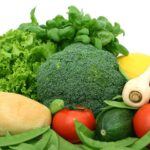Gallbladder removal, or cholecystectomy, is a common surgical procedure that involves the removal of the gallbladder. The gallbladder is a small organ located beneath the liver that plays an important role in the digestion of fats. After gallbladder removal, it is important to make some dietary adjustments to ensure proper digestion and avoid complications. In this comprehensive guide, we will provide you with a list of foods to eat and avoid after gallbladder removal.
What to Eat:
1. High-fiber foods: Foods that are high in fiber, such as fruits, vegetables, and whole grains, can help regulate digestion and prevent constipation.
2. Lean protein: Choose lean proteins like chicken, fish, and tofu. Avoid red meats and processed meats as they are high in fat and can be difficult to digest.
3. Healthy fats: Fats are still an important part of your diet, but you should choose healthy fats such as olive oil, avocado, and nuts. Avoid saturated and trans fats found in fried foods, processed snacks, and baked goods.
4. Low-fat dairy: Dairy products are a great source of calcium and protein, but you should choose low-fat options like skim milk, low-fat yogurt, and reduced-fat cheese.
5. Small, frequent meals: Instead of eating three large meals a day, aim for smaller, more frequent meals to prevent overloading your digestive system.
What to Avoid:
1. Fried foods: Fried foods are high in fat and can be difficult to digest, so it is best to avoid them altogether.
2. Dairy products high in fat: Whole milk, full-fat cheese, and ice cream are all high in fat and can be difficult to digest.
3. Spicy foods: Spicy foods can irritate the digestive system and cause discomfort, so it is best to avoid them.
4. High-fat meats: Red meats, bacon, and sausages are high in fat and can be difficult to digest.
5. Alcohol: Alcohol can irritate the digestive system and cause discomfort, so it is best to avoid it altogether.
Conclusion:
After gallbladder removal, it is important to make some dietary adjustments to ensure proper digestion and avoid complications. Focus on high-fiber foods, lean proteins, healthy fats, and low-fat dairy. Avoid fried foods, high-fat dairy products, spicy foods, high-fat meats, and alcohol. Remember to eat small, frequent meals to prevent overloading your digestive system. By following these guidelines, you can ensure a healthy and comfortable post-gallbladder removal diet.




